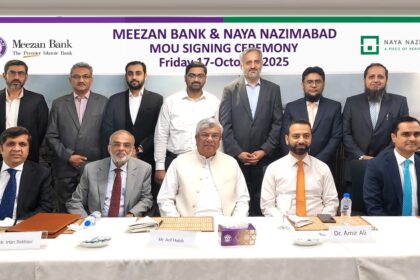A major consultation in Karachi has brought together senior government officials, health experts, and stakeholders to urgently address the growing threat of lead poisoning among children in Pakistan. The two-day meeting, titled “Eliminating Childhood Lead Poisoning – Evidence-Based Policy Actions,” was jointly organized by the Ministry of National Health Services, Regulations and Coordination (MoNHSR&C), UNICEF, and the Health Services Academy (HSA).
Participants included representatives from the provincial health department, environmental protection agencies, food authorities, the Karachi Chamber of Commerce, the Pakistan Pediatric Association, universities, and civil society organizations. Their main objective was to develop a comprehensive, multi-sectoral national action plan to combat childhood lead poisoning, a preventable but serious public health risk affecting millions of children across Pakistan.
During the opening session, Dr. Rehan Rauf, Deputy Director for Nutrition and Environmental Change at the health ministry, presented alarming statistics showing that more than 40 million Pakistani children have blood lead levels exceeding globally accepted safety limits. He explained that even low levels of lead exposure can cause irreversible brain damage, diminish IQ, and result in lifelong health problems. Citing recent research by Aga Khan University and LEEP, he stressed that further delays in addressing this crisis in Sindh were unacceptable.
Lead poisoning is especially severe in urban and industrial areas, where unregulated smelting, recycling, and manufacturing activities expose communities to toxic pollution. Pregnant women and young children are the most vulnerable, with long-term consequences for public health and the national economy.
A ministry spokesperson reaffirmed the government’s commitment, emphasizing that protecting children from lead poisoning is not only a technical challenge but also a moral responsibility. They called for strong interdepartmental coordination, evidence-based policymaking, and stricter enforcement of environmental laws.
Dr. Humera Irshad of UNICEF highlighted the major obstacles to eliminating childhood lead poisoning and reaffirmed UNICEF’s support in implementing the national action plan. She pledged UNICEF’s continued technical and resource assistance to help create and enforce an effective, evidence-based strategy to safeguard Pakistan’s children from this silent danger.
Dr. Maryam Sarfraz, Principal Investigator at the Health Services Academy, stressed the need for a sustainable national framework. She explained that the effort goes beyond data collection, aiming to establish systems for continuous monitoring, risk analysis, and targeted interventions in high-risk communities. She also acknowledged the support of Sindh and Balochistan’s provincial health leadership.
The consultation ended with unanimous agreement that strong government leadership, robust epidemiological evidence, and a coordinated multisectoral response are essential to eliminate childhood lead poisoning in Pakistan. Participants emphasized the importance of cohesive policies, regulatory enforcement, and community engagement to effectively tackle the complex environmental and public health challenges posed by lead contamination.











